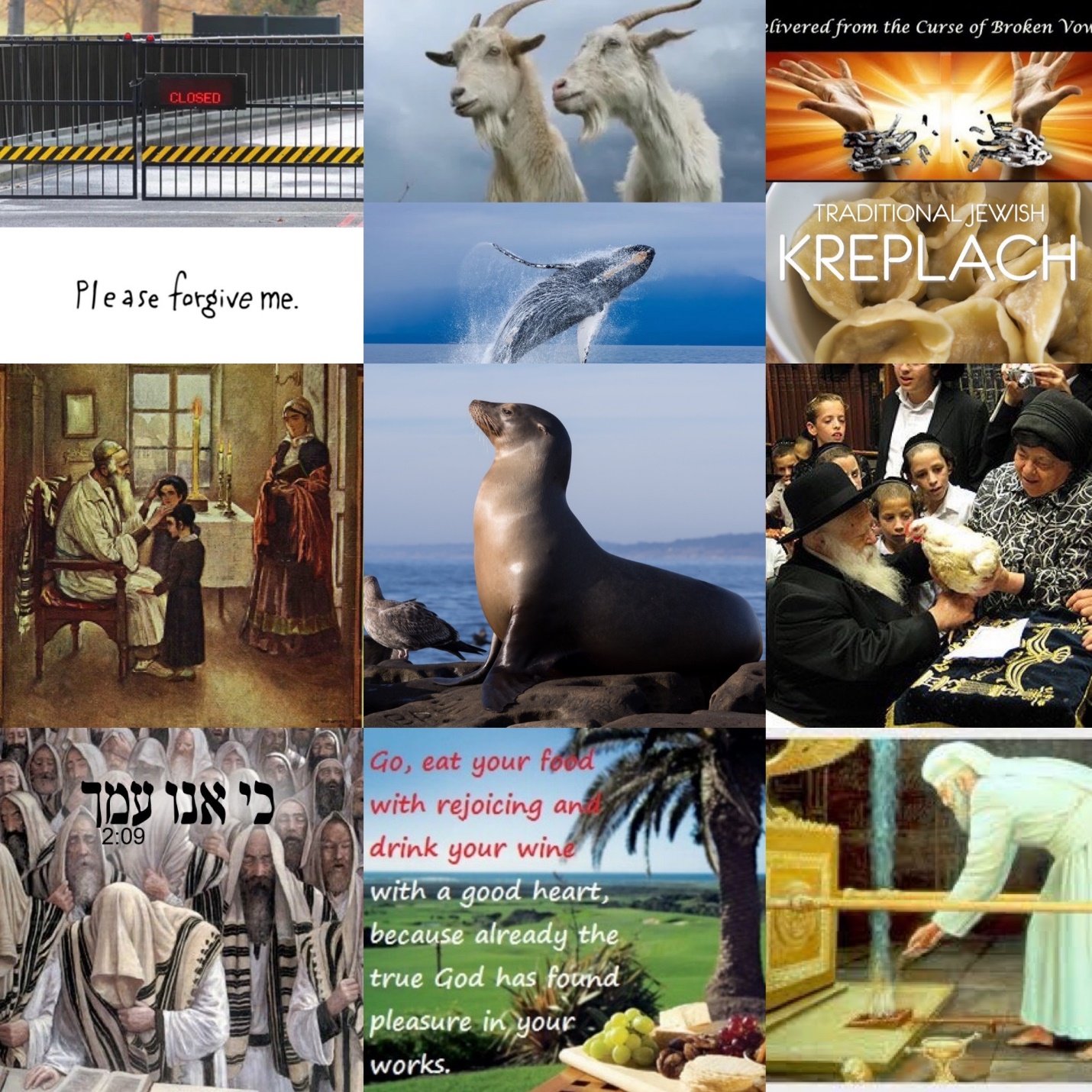PARSHAS KORACH
Can you figure out what each picture has to do with the parsha?

Rabbi Dani Staum
Parshas Korach Parshas Pix Key
Tzitzis with techeilies – To bolster support for his challenge against Moshe, Korach used leitzanus (mockery) to undermine Moshe’s authority. He did so by mocking Moshe’s response to certain halachic questions. One of the questions was whether an article of clothing made completely out of techeiles still needs a string of techeiles – Rashi, 15:1
Room full of seforim – Korach’s second question was whether a house full of seforim needs a mezuzah – (Bamidbar Rabbah 18:3)
Bad Neighbor – Rashi quotes Chazal: “Woe to the wicked and woe to his neighbor”. Dasan and Aviram (of Shevet Reuven) camped near Korach (of Kehas) and they were negative influences on each other – Rashi 15:1
Massive hole in earth – Korach, Dasan and Avirom and their families were swallowed up. (Malbim says it wasn’t one big hole, but it was as if the hole had a mind of its own. It would travel through the camp and open beneath Korach and his followers and their belongings wherever they were. It was as if it had a list and knew exactly where to go and who/what to swallow.)
Copper cover – There were 250 elders who were instructed to offer ketores as part of the test to see whose Hashem would accept – theirs or Aharons. They offered their ketores on copper firepans and they immediately died as punishment for challenging Aharon. Their firepans were then combined to create a copper cover for the Mizbeiach.
Almonds growing on tree –The nesi’im submitted their staffs to the Mishkan overnight. In the morning only Aharon’s had almonds budding and growing on it, a symbol that he was the one chosen by Hashem – 17:23
One tenth – The Torah commands that every farmer must give ma’aser, one tenth of his produce, to a Levi – 18:24
Baby on platter – The mitzvah of pidyon haben is to redeem a firstborn son – 18:15
Stopping the plague – After Korach and his family were swallowed up, and the 250 elders died when offering ketores, the nation complained, and Hashem caused a plague to sweep through the camp. Moshe instructed Aharon to grab a firepan of ketores and run through the camp as atonement. Aharon did so and the plague abated – 17:11




